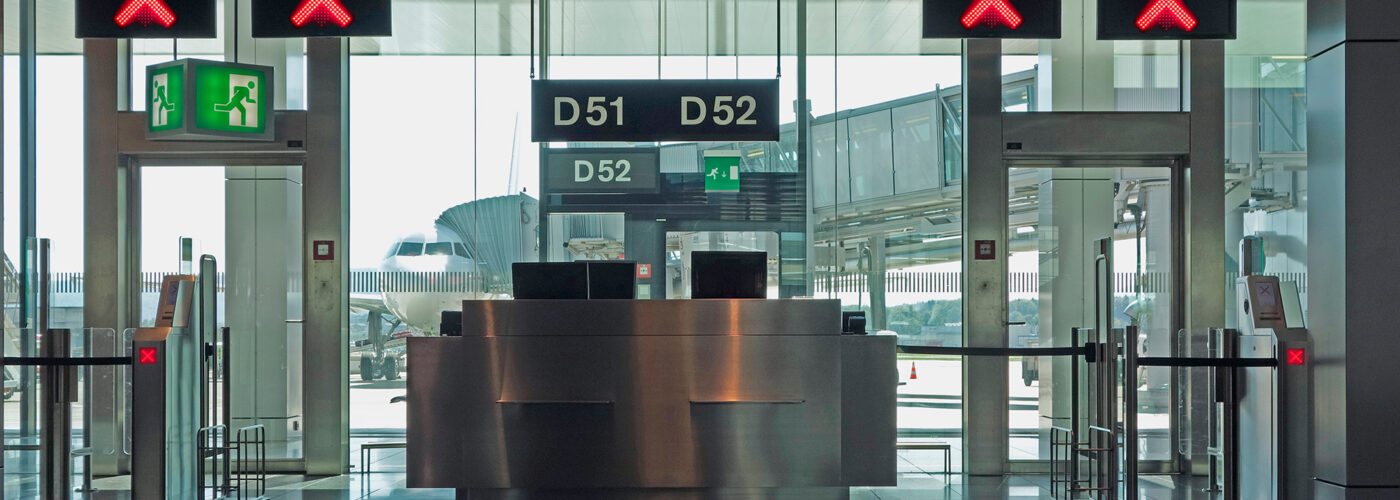Despite all the technical advances, air travel remains subject to occasional sudden delays, a situation not likely to change very fast. And unless you get a single flight from your starting point to your final destination, delays of more than a few minutes can sometimes cause you to miss a connecting flight. But there are some conditions that can complicate things.
A reader once asked, for example, if it’s smart to buy the cheapest fare when it’s two separate tickets on two different airlines:
“If I buy two separate tickets, on two different airlines, and the first flight arrives too late to make my connection, would travel insurance cover the costs of re-arranging my trip?”
The short answer: It’s unlikely. While no insurance companies seem to specifically cover this kind of missed connection, some policy protections could apply. Here’s what you need to know.
The Two-Ticket Problem
Let’s say that, on a connecting itinerary, your first flight is delayed so much that you miss your connection. On a through ticket, you’d have no problem—your connecting airline would put you on the next available flight without added charge. And, depending on the circumstances, one of the airlines might even pick up the tab for meals or an overnight accommodation.
But if you have two separate tickets on two different airlines, neither airlines is responsible for the other’s delay, and therefore not responsible for rebooking you. Over the years, I’ve heard from quite a few readers who faced such a problem. Yet as the airline system continues to fragment, it’s more likely than ever to find that the lowest airfare is two separate tickets.
Unfortunately, for various reasons, several important airlines do not interline and write through tickets with any others, or they may interline with only one or two other lines. That includes airlines carrying significant numbers of travelers both in the U.S. (Southwest) and Europe (Ryanair and EasyJet), along with such smaller lines as Allegiant, Frontier, Spirit, and many, smaller European and Asian lines. If you want to connect to or from these lines, you’ll have to buy two tickets.
Nor can you count on the airline that caused the delay to help you, either. Contracts specifically say that an airline isn’t responsible for scheduled arrival or bears no financial liability for any loss you suffer because of a late arrival.
Does Insurance Help?
Travel insurance companies haven’t yet developed a standard “solution” to missed two-ticket connections. QuoteWright, a leading online travel insurance agency, confirmed as much.
Typically, travel insurance policies cover missed connections under either “interruption” or “delay.” But policies differ in their definitions and limitations on which “perils” apply. Some policies kick in only if the delay extends more than a set period, anywhere from a few hours to as much as 12 hours.
Some bundled-package policies include a separate “missed connection” benefit, but that benefit is, at best, problematic in the case of a missed two-airline connection. Many of those policies specifically limit the missed connection benefit to missed cruise departures. And dollar limits can be as low as $250. According to QuoteWright, insurance companies adopted special missed connection coverage as a way to limit liability under the broader interruption or delay coverages.
Policies that do cover airline-to-airline connections limit application to connections that adhere to the minimum “legal connection times,” an obviously meaningless concept in two-ticket connections.
All in all, as far as I can tell, missed airline-to-airline connection coverage is a coverage that the insurance industry has largely missed.
Defending Yourself
When one-ticket travel doesn’t work, you can protect yourself, at least some of the time:
- Never book separate-ticket connections with less than a three-hour connecting time. Two-ticket trips can require reclaiming and rechecking your baggage, at a minimum. At worst, you may also have to exit and re-enter security at different terminal buildings.
- Buy insurance, but buy a policy that (1) has a broad coverage of interruption, delay, or missed connections, and (2) provides a benefit high enough to pay for a replacement ticket and possibly an overnight stay at your connecting airport.
- Even though you may look at insurance options and prices through an online agency, before you buy, speak with an agent—or exchange emails with an agent—who can confirm that the insurance provides coverage for your specific itinerary.
Clearly, the added risks are sufficiently great that you shouldn’t buy a two-ticket itinerary unless the cost difference between that and a through-ticket itinerary is excessive, or unless you just can’t buy a single-ticket trip. And if you have to buy two tickets, pad your schedule accordingly.
More from SmarterTravel:
- Tight Airport Connections: What You Need to Know About Making a Connecting Flight
- The Worst Cities for an Airport Connection, If You Want to Make Your Flight
- 10 Tips for Tight Airport Connections
Editor’s note: This story was originally published in 2010. It has been updated to reflect the most up to date information.
We hand-pick everything we recommend and select items through testing and reviews. Some products are sent to us free of charge with no incentive to offer a favorable review. We offer our unbiased opinions and do not accept compensation to review products. All items are in stock and prices are accurate at the time of publication. If you buy something through our links, we may earn a commission.
Related
Top Fares From
Today's Top Travel Deals
Brought to you by ShermansTravel
Shop and Save with Country Inns...
Patricia Magaña
 Hotel & Lodging Deals
Hotel & Lodging Deals
$229 -- Chicago: Discounted Rates and...
Francesca Miele
 Hotel & Lodging Deals
$229+
Hotel & Lodging Deals
$229+
$188 -- Honolulu: Save on Oceanview...
Abigail Lamay
 Hotel & Lodging Deals
$188+
Hotel & Lodging Deals
$188+




